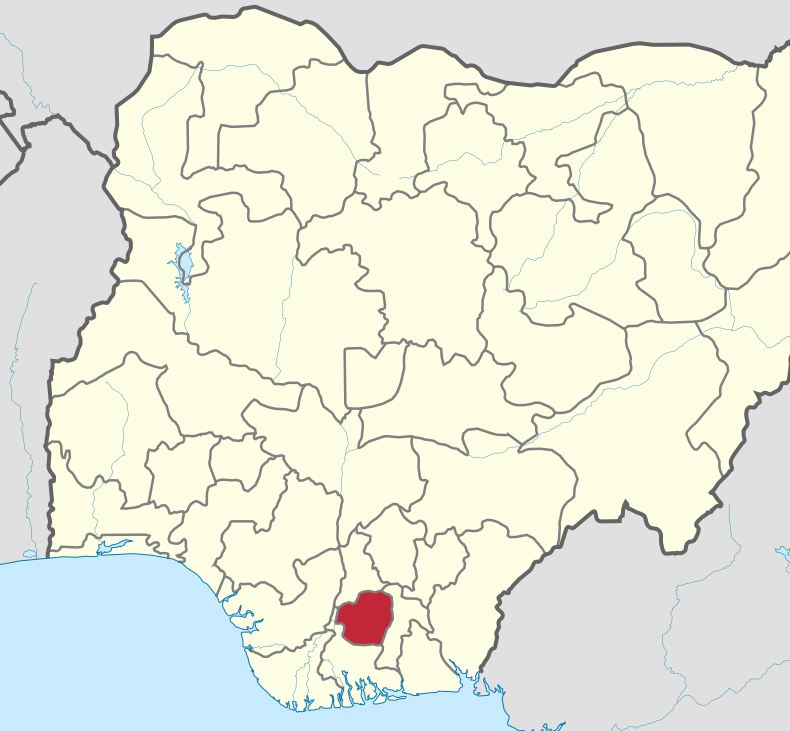Modern-day Imo State has been inhabited for almost a thousand years by the Igbo people with the Igbo language serving as a lingua franca alongside English throughout the state. In the pre-colonial period, what is now Imo State was a part of medieval Kingdom of Nri and the later Aro Confederacy before the latter was defeated in the early 1900s by British troop then the Anglo-Aro War. After the war, the British incorporated the area into the Southern Nigeria Protectorate which later merged into British Nigeria in 1914; after the merger, Imo became a centre of anti-colonial resistance during the Women's War.[10]
After independence in 1960, the area of the present-day Imo was a part of the post-independence Eastern Region until 1967 when the region was split and the area became part of the East Central State. Less than two months afterwards, the former Eastern Region attempted to secede in the three-year long Nigerian Civil War with Imo as a part of the secessionist, Igbo nationalist state of Biafra. The area was hard fought over throughout the war with Owerri and its surrounding area exchanging hands twice before Owerri was named the Biafran capital in 1969. The present-day Imo State was captured by federal forces in early 1970 with Operation Tail-Wind taking the city and ending the war.[11] At the war's end and the reunification of Nigeria, the East Central State was reformed until 1976 when Imo State was formed by the Murtala Muhammed regime. Fifteen years afterwards, Imo State was divided with eastern Imo being broken off to form the new Abia State.[12][13]
The state economy is highly dependent on agricultural production, especially the production of palm oil, which a majority of citizens rely on for cooking.[14] A key minor industry is the extraction of crude oil and natural gas,[15] especially in Imo's north and west. The state has been beset by violence at various points throughout its history, most notably the anti-cult 1996 Otokoto Riots[16] and the ongoing separatist violence from the Eastern Security Network[17] along with other opportunistic nativist gunmen. Despite unrest, with its fast growing population and industrialization, Imo State has the joint-sixth highest Human Development Index in the country.[18]
 Amarachi Agu
Amarachi Agu 